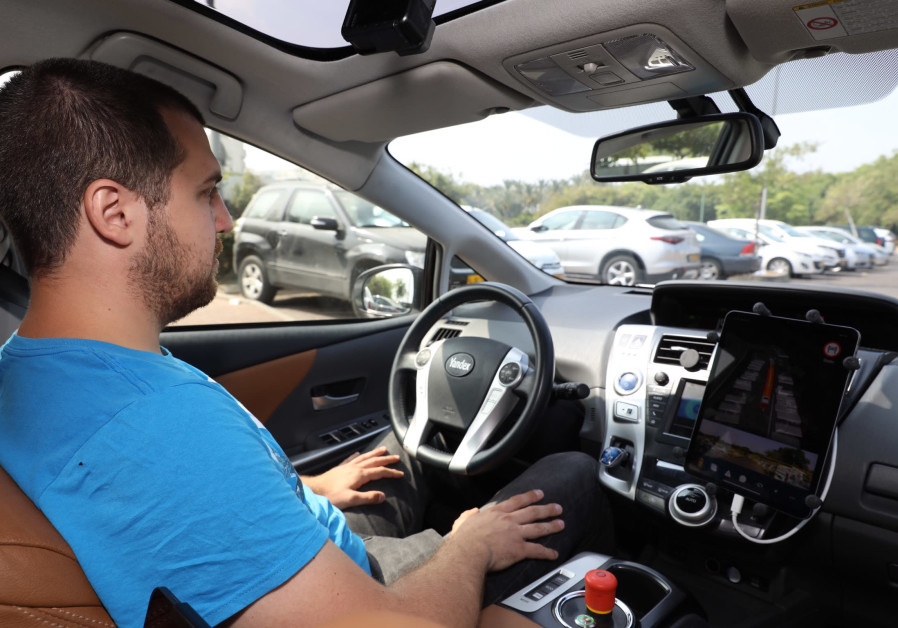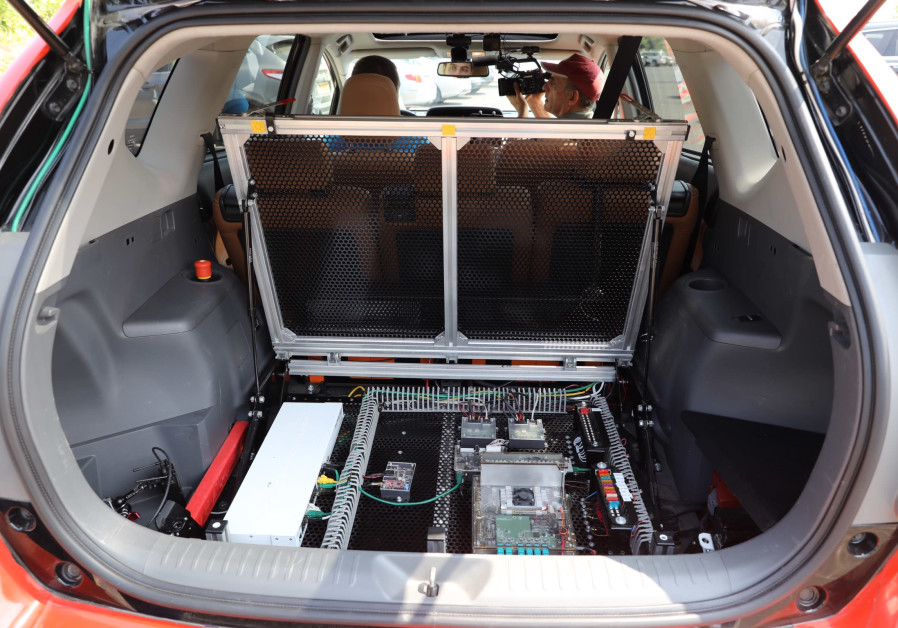Among the 750,000 vehicles that travel along Tel Aviv’s traffic-clogged Ayalon expressway every day, eagle-eyed motorists might have spotted one vehicle with a significant difference on Wednesday.
Indeed, amid the commuting masses rode an autonomous vehicle developed by Moscow-headquartered Yandex, safely navigating the morning traffic without any human intervention.
Known for developing the largest Russian-language search engine and mapping software, Nasdaq-listed Yandex has utilized its expertise in machine learning and cloud technologies since 2016 to also develop autonomous vehicle technology.
After the Transportation Ministry granted the multinational corporation a license in January 2019 to operate its self-driving cars on public roads, Israel has become Yandex’s first center outside the borders of Russia and the former Soviet Union for the development of autonomous vehicle technologies.
“Our idea is to develop autonomous driving technology which is capable of handling all possible road and traffic situations,” Artem Fokin, head of business development for autonomous driving at Yandex, told The Jerusalem Post, as the car exited Route 20 and smoothly maneuvered around the city streets.
“Tel Aviv is a very interesting place for us because we have some road conditions that we didn’t experience in our domestic markets, such as a lot of two-wheel vehicles and the presence of many more roundabouts.”
One particular challenge that autonomous car developers need not worry about in Tel Aviv, Fokin jested, is driving in Moscow’s snow.
“The car steers by itself, accelerates and decelerates by itself and operates blinkers as needed, all by itself. As we can see, we can safely navigate traffic in Tel Aviv,” Fokin added.

Yandex is testing its level four-standard autonomous cars in Tel Aviv, where vehicles perform all safety-critical driving functions under certain conditions. The driver also has the option to control the vehicle, should it be necessary or desired.
The company is also testing a fully autonomous, level-five vehicle in public test zones, where the vehicle’s systems control all driving functions, in all conditions.
A specially adapted Toyota Prius is currently in operation in Israel, with the only noticeable external difference being a LIDAR system mounted on the roof of the car. A test driver, mandated by Israeli law, is present throughout the journey, in case of any problems.The LIDAR system spins a laser array 360 degrees to produce a 3-D model of its surroundings, with a level of accuracy within 2 cm. Two radars, mounted on each side of the car, measure the distance between objects as far as 250 meters away and gauge their speed.

Multiple cameras also constantly interpret road signs, traffic signals, road markings and more, and overcome the issue of a human driver’s blind spot.
Yandex aims to put 100 autonomous test vehicles on the road worldwide by the end of the year, the company has said, and has already commenced operating autonomous ride-hailing services in Tartarstan and Skolkovo. The driverless rides still require a testing engineer to be present.
While the Post’s test journey in Tel Aviv lasted 30 minutes, Yandex’s autonomous cars have traveled much longer distances to date.
In June 2018, a car successfully drove itself from Moscow to Kazan in southwestern Russian, a 700 km. journey of 11 hours. The ride was automatic for 99% of the trip, the company said.
“During the tests, I must always concentrate and ensure that all the systems are working as they should,” Yandex testing engineer Leonid Shavlav told the Post.
“It is very rare that I have to intervene, but I must always be ready to hit the brakes or press the gas pedal in case a pedestrian does something very unexpected.”
Recognizing the need to ensure safety at all times for the self-driving car revolution to become mainstream and to realize Yandex’s ambitious goal of a future where no one gets hurt on the roads, Fokin highlighted a list of safety procedures and systems put in place by the company.
Alongside cybersecurity technology, mechanical certification, constant testing – in simulators, test environments and finally city streets – and hiring highly trained test drivers, valuable data gained from every kilometer and journey traveled are analyzed by the company, which constantly updates its growing fleet of cars to recognize potential hazards and future traffic patterns.
